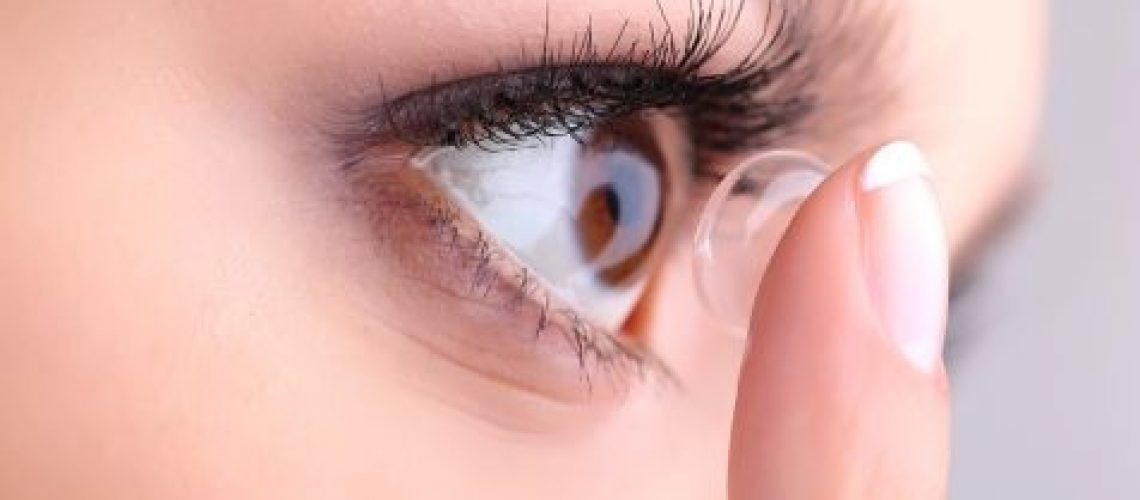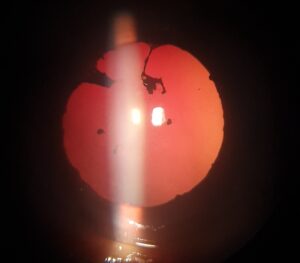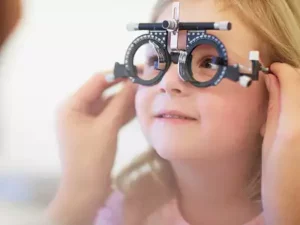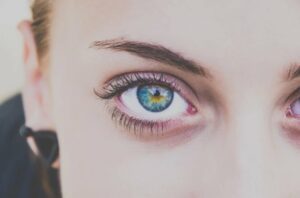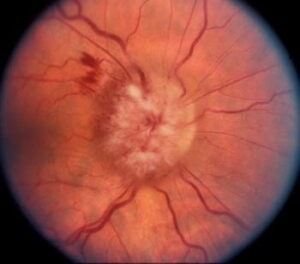Contact lenses are thin, transparent, disc-shaped plastic lenses that go over the eye’s tear film and are used to improve vision. Contact lenses are considered useful and beneficial medical devices to correct refractive errors (myopia, hyperopia, astigmatism and presbyopia). They are not fashion accessories.
Types of contact lenses:
- Rigid gas permeable contact lenses: they allow a better flow of oxygenation between the lens and the cornea, and are recommended for people with astigmatism or keratoconus. These are better because they prevent the buildup of protein deposits that can lead to corneal infections or ulcers.
- Soft contact lenses: they are more comfortable and less expensive. But there is less oxygen flow to the cornea and a high chance of protein deposits building up that can negatively affect the eye.
- Colored contact lenses: are those soft lenses that change the color of the eye.
- Contact lenses for daily use: they are disposable. He wears them during the day and takes them off at night. Depending on the quality, wear a new pair every day, every week or every month. They are recommended for people who wear contact lenses from time to time.
- Toric contact lenses: they are disposable and recommended for astigmatism. They are of lower quality than rigid gas permeable contact lenses.
- Bifocal contact lenses: these are advanced soft lenses that correct both presbyopia and astigmatism.
- Scleral lenses: they are permeable to gases and of large diameter, they are specially designed to treat keratoconus and other corneal irregularities. They tend to be more expensive because they are custom made.
Improper use of contact lenses can cause cuts, wounds, and infections that can lead to blindness.
Risks of wearing contact lenses:
- Corneal injury
- Corneal ulcers
- Bacterial and fungal infections
- Chronic dry eye
Tips for wearing contact lenses safely:
- Wash your hands before and after putting on contact lenses.
- Apply a drop of lubricant eye drop before putting on and taking off the contact lens so that it slips off easily.
- Use artificial tears to maintain good lubrication and oxygenation in the cornea.
- Do not sleep with contact lenses.
- If you have allergies, don’t wear contact lenses.
- Rub, rinse, clean and disinfect contact lenses daily with multipurpose solutions.
- Keep them in their cases.
- Do not clean contact lenses with saliva.
- Don’t lend them to anyone or wear someone else’s contact lenses.
- If you wear them on the beach, wear sunglasses.
- Maintain good eyelid and eyelash hygiene.
- If you wear makeup, put your contacts in first.
- Never put a contact lens on an irritated eye.
- If it itches, burns, hurts, or looks blurry, go to your trusted ophthalmologist.
The most popular contact lenses are silicone hydrogel soft contact lenses. They are comfortable, disposable and less expensive.
The safest contact lenses are rigid gas permeable ones. They are usually less comfortable and more expensive. They can last a year or more.
Take care of your contact lenses by cleaning, disinfecting and storing them safely.
Seek eye care if you experience eye discomfort from contact lens wear.

